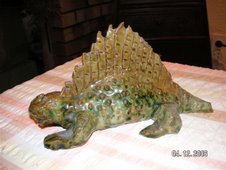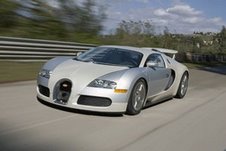Note from Colin (hippo's keeper) added Saturday Nov 18th
It seemed like a good idea at the time: to let the inner nerd speak. He needs his occasional day out, same as the rest of us. But to spare you having to plough through his leaden prose (in autumnal chesnut below ) here's the gist of his message.
"Anglo-Saxon" has numerous connotations, none of them flattering.
It implies:
(a) a barbarian war-like disposition
(b) the idea that the English are outsiders, not indigeneous to Britain
(c) The English-dominated government in London has no mandate to speak on behalf of the whole of Britain
(d) the English are genetically of mixed blood and, ipso facto, unknown, untrustworthy quantities
(e) the English are too given to acting as poodle to those other "Anglo-Saxons", namely the Americans.
So when you refer to us, Frère Jacques, as "les Anglo-Saxons", don't expect us to share your little Gallic joke. What joke ? Where's the humour ? Whatever happened to the Entente Cordiale ? 
Well, you do disappoint me, boys and girls. Only one response to my questionnaire so far, and that from the boy who always has his hand up.
Now if he is capable of an original "take" on the expression "Anglo-Saxon" , as used by the French to refer to ourselves, then I'm sure YOU too could come up with something original if you tried.
Or are you going to let that clever boy do all your thinking for you ?
But here are three more views on what Anglo-Saxon means, outside of its strict historical context.
1. The Anglo-Saxons arrived as foreign interlopers. Even if they had been entirely peaceful, they ended up somewhere they didn't belong. Anglo-Saxons are not true Britons. The true Britons , we used to be told (mistakenly), are the Celts, ie the Scots, Irish and Welsh. Ipso facto, the modern day English are not authentic British, but a foreign strain. They are your worst nightmare, the transient, the traveller, who deciding he likes his new abode ("Good 'ere, innit ?) becomes first a squatter, and then sets up home in your backyard.
And here's a point where I find myself partially in agreement with that solitary commentator: on no account will the French risk offending their Celtic friends and/or ancient allies by speaking disparagingly of the British. Better to avoid that blanket term, and instead speak sniffily of the "Anglo-Saxons". When in doubt, use coded language.
2. The Anglo-Saxons were not peaceable interlopers. Far from it: they were warlike invaders who subjugated the native Britons. "Briton" is in fact an Anglo-Saxon word that means "slave". Ipso facto, the term "Anglo-Saxon" is a reference to our supposed belligerence and bellicosity, still manifest 1500 years later, we are told, in the behaviour of our football hooligans, Margaret Thatcher's re-taking of the Falklands, her taming of the unions, Blair's military campaigns in Kosovo, Afghanistan and Iraq.
3. The Anglo-Saxons were a hybrid entity - a genetic cross. Put crudely, that means the modern English are mongrels. As such they have a unique mix of genes that is peculiar to the English. So when the English appear to think or act differently from mainland Continentals, one should not waste time in trying to reason or understand. They are "Anglo-Saxons" who behave the way they do, because it is hard-wired into their DNA.
*************************************************
So there you have it, class: already we have three distinctly different interpretations, and that's not counting the one we have already. You see, I have made no mention of our transatlantic cousins, the Americans. That's an aspect that appears to weigh heavily in the mind of our single Commentator.
But none of these interpretations, note, are in the least bit flattering. All can be made to sound pejorative.
What a handy expression, then, to have: "Anglo-Saxon" : a multipurpose, coded insult, one that can always be passed off lightly, if challenged, as a cheeky historical allusion, but which really comes down to one thing : the English are NOT ONE OF US.
We Brits are generally an easy going lot. We're not given to getting worked up about the tags, labels, that others apply to us. But can we afford to be so relaxed, philosophical about one that can be taken to mean so many different things ? And one, moreover, that according to Stephen Oppenheimer, reinforces a mistaken view of history and genetics, ie that the English are not native to Britain ?
We warn our own children of the dangers of racial stereotyping which can lead to demonising, then persecution. So why should we acquiesce to the misuse of a label that has ceased to have any meaning in modern society ? Why have we allowed others to lift a geographical term from our British history, that can now be used quite freely in the politest of society as a snide, derogatory NATIONAL PUT-DOWN ?
Friday, November 17, 2006
So what do YOU make of that term "Anglo-Saxon" ?
Posted by
sciencebod
at
1:19 pm
![]()
Labels: Anglo-Saxon, belligerence, French, hippo, put-down, racial stereo-typing
Subscribe to:
Post Comments (Atom)








9 comments:
Your blogs are good, Colin - it's just that this Anglo-Saxon thing reads like a school lesson and my eyes glazed over as I slumped on my laptop! Of course teachers pet replied to your questionnaire, and in his usual refrain - people with small brains like me are incapable of replying. I would have thought Thomas (?) who got very excited on CR's Telly blog would have replied - the stuff is right up his street but maybe he got lost when CR was ousted.
Hi Louise
I think it's perhaps that Eric Dickens you have in mind. Now there was a guy who could make MY eyes glaze over at 100 paces, once he got going on his special subject of "Linguistic Divides in Europe". Except he was the one to say "I've started, so I will finish". In his own good time .... I wonder what Eric will do, once David Rennie decamps to the Economist.
Thanks muchly for the feedback.
Candid, but very welcome all the same. I had a feeling there was something wrong with that last one. A bit of a suet pudding. That's the trouble when one delegates !
This blog's a month old today. I'll put something up later from a blogger's-eye view and say a few words about future directions.
Yes, that's right, it was Eric - perhaps he will move to the Economist with David Rennie - we can be thankful that he hasn't moved with CR or yourself...keep all fingers and toes crossed!
There's now a short précis added to the start of this post. Hope you find it a little more concise and readable.
Welcome Anne Gilbert to my little calm retreat, this tranquil backwater.
I thank you for the kind invitation to return to your mighty river. As you know I have, in the past, wallowed joyfully in the lush environment of your riparian reserve.
But the problem, as you know, are those two ageing crocodiles, who become more ill-tempered, more aggressive with each passing day.
My children, or one of them at any rate, already fear for my prospects of being there, for them, one day, as an intact grandparent, in full possession of his marbles. She of the clinical tendency, who must be obeyed, has said it is time for this hippo to confine himself to safer waters. Sadly, I believe the advice is sound.
I shall neverthless continue to observe from afar your little community, bursting with its life and energy, with both interest and not a little envy.
M. Berri
In your original questionnnaire, number 1 question reads as follows:"1. Why do the French refer to us on occasions as Anglo-Saxons ?" And although it is not well presented it seems that the further questions are follow up questions to point 1. So the conclusion for a cartesian brain is that you are wishing to know exactly what this term means when used by the French (in general not every single Frenchman évidemment). Not wishing to be hors sujet for the prof. I replied to the question to the best of my ability. Now you come up with additional connotations for 'anglo-saxon'. What are these? Are you suggesting that they are meanings of "anglo saxon" when used by the French? In my opinion the only one that is valid is point (e), the others are your own invention.
You don't seem to understand that the term represents something that actually exists. With the Iraq question, England did go with the US and dump their French ally. The UK does spend a considerable amount of time seeking to destroy the CAP. The UK does favour laisser faire economics. The UK does refuse the idea of tax harmonisation.The UK did opt out of the Euro.Inequality is higher in England than France.In the main these are phenomena which the UK finds desirable while the French find them undesirable.It is in fact a difference of opinion as to what kind of society we want.
To anyone wondering about that earlier "Comment Deleted", no it was not censorship. This blog allows free expression of opinion, providing it sticks to the issues. It was, in fact, Blogger playing up again, which resulted in me posting my own comment twice !
Re. the Anglo-American alliance: brace yourselves for a unsentimental view next week on the subject of our so-called "special relationship". Anyone who thinks that being Eurosceptic (or Franco-despairing) means being pro-Washington could be in for a big surprise.
Colin, I would respond to your questionnaire, but really I have no time. It's a bit heavy and requires too much thought at length.
Why not explore Google for other blogs on Anglo-Saxonism and post a link to your questionnaire in the comments of these blogs.
Post a Comment